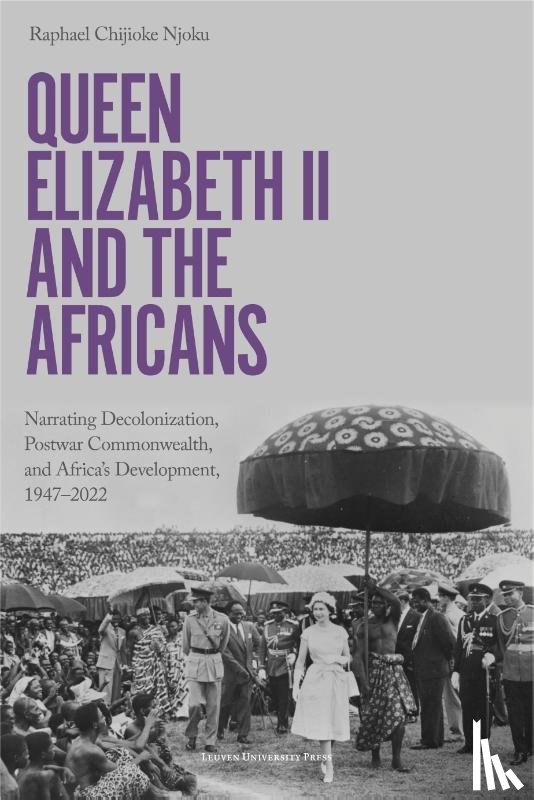Omschrijving
First book-length study by an African that incorporates the trials and triumphs of Queen Elizabeth II, tracing her contributions to African affairs The road to Queen Elizabeth II’s implementation of African reforms was rough, especially in the first two decades following her ascension to the throne. In this book, Raphael Chijioke Njoku examines Queen Elizabeth II's role in the African decolonization trajectories and the postcolonial state's quest for genuine political and economic liberation since 1947. By locating Elizabeth at the center of Anglophone Africa's independence agitations, the account harnesses the African interests to tease out the monarch's dilemma of complying with Whitehall's decolonization schemes while building an inclusive and unified Commonwealth in which Africans could play a vital role. Njoku argues that to gratify British lawmakers in her complex and marginal place within the British parliamentary system of conservative versus reformist, Elizabeth’s contribution fell short of African nationalists’ expectations on account of her silence and inaction during the African decolonization raptures. Yet ultimately, the author concludes, she helped build an inclusive and unified organization in which Africans could assert and appropriate political and economic autarky.Raphael Chijioke Njoku, PhD, is an African history and global studies professor at Idaho State University.Njoku provides a vivid and sweeping account of Queen Elizabeth II’s involvement in British relations with Africa during the era of decolonization and the Cold War and beyond. – Tim Stapleton, University of CalgaryLike an opera, this book masterfully brings various aspects of British imperialism, colonial discourses, and African assertions of personhood into harmony. It is an essential read for all interested in empire and the politics of decolonization in British colonial Africa. – Chima Korieh, Marquette University The road to Queen Elizabeth II’s implementation of African reforms was rough, especially in the first two decades following her ascension to the throne. In this book, Raphael Chijioke Njoku examines Queen Elizabeth II’s role in the African decolonization trajectories and the postcolonial state’s quest for genuine political and economic liberation since 1947. By locating Elizabeth at the center of Anglophone Africa’s independence agitations, the account harnesses the African interests to tease out the monarch’s dilemma of complying with Whitehall’s decolonization schemes while building an inclusive and unified Commonwealth in which Africans could play a vital role. Njoku argues that to gratify British lawmakers in her complex and marginal place within the British parliamentary system of conservative versus reformist, Elizabeth’s contribution fell short of African nationalists’ expectations on account of her silence and inaction during the African decolonization raptures. Yet ultimately, the author concludes, she helped build an inclusive and unified organization in which Africans could assert and appropriate political and economic autarky. Preface
Abbreviations
Introduction
Chapter 1—The House of Windsor: African Subjects and the Princess-Queen
Chapter 2—Deconstructing the 1947 Cape Town Speech : Decolonization Rhetoric and the Commonwealth
Chapter 3—The Cold War: African “Radicals” and Her Royal Stateliness, 1953–1961
Chapter 4—Her Majesty’s Africa Tour-De-Force : Feasting with the Obedient, the Noble, and the Nonconformist, 1961–1989
Chapter 5—Majestic Milestones: The Commonwealth and Africa’s Development
Chapter 6—King Charles III and Africa’s Commonwealth Future
Conclusion
Notes
Bibliography
Index


